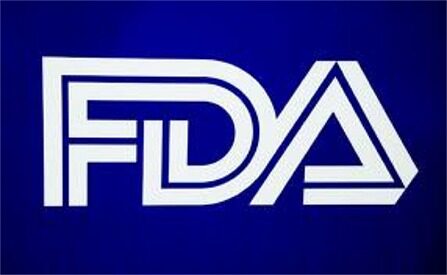In anews release, Acting FDA Commissioner Ned Sharpless, M.D., said, “As we examine potential regulatory pathways for the lawful marketing of products containing cannabis and cannabis-derived compounds like CBD, protecting and promoting public health remains our top priority. Selling unapproved products with unsubstantiated therapeutic claims — such as claims that CBD products can treat serious diseases and conditions — can put patients and consumers at risk by leading them to put off important medical care. Additionally, there are many unanswered questions about the science, safety, effectiveness and quality of unapproved products containing CBD."
Dr. Sharpless added that FDA is in committed to monitoring the marketplace and protecting the public health by taking action against companies that "deceive consumers and put them at risk by illegally selling products marketed for therapeutic uses for which they are not approved, such as those claiming to treat cancer or Alzheimer’s disease. Consumers should beware of purchasing or using any such products.”
FDA Principal Deputy Commissioner Amy Abernethy, M.D., Ph.D., added, “We understand this is an important national issue with public health impact and of interest to American hemp farmers and many other stakeholders. The agency has a well-established pathway for drug development and drug approvals, and we remain committed to evaluating the agency’s regulatory policies related to other types of CBD products. We plan to report our progress by early this fall as we expedite our work to address the many questions about CBD. The step-wise, science-based approach we’re taking protects patients and the public health, fosters innovation for safe and appropriate products, and promotes consumer confidence.”
In the warning letter to Curaleaf, the FDA specified examples of several claims from the website and social media accounts that "establish the intended use of your products as drugs." These include:
- “CBD oil is becoming a popular, all-natural source of relief used to address the symptoms of many common conditions, such as chronic pain, anxiety . . . ADHD.”
- “CBD can successfully reduce anxiety symptoms, both alone and in conjunction with other treatments.”
- “CBD has also been shown to be effective in treating Parkinson’s disease.”
- “CBD was effective in killing human breast cancer cells.”
Related: FTC/FDA Warning Letters Issued to CBD Companies NPA Submits Comments to FDA on NDIs and CBD
FDA also noted that the Curaleaf website suggests that the company intends to market its CBD products as dietary supplements. "However," the letter states, "they cannot be dietary supplements because they do not meet the definition of a dietary supplement under sections 201(ff)(3)(B) and 201(ff)(2)(A)(i) of the FD&C Act, 21 U.S.C. 321(ff)(3)(B) and 321(ff)(2)(A)(i)."The letter also specified that the Agency determined that the company is marketing products "unapproved new animal drugs."
Read the full letter, with the list of claims outlined,here.
Curaleaf issued the following statement in response to the letter:"Curaleaf is committed to the highest standards of quality and compliance, and will work collaboratively with the FDA to resolve all issues addressed in the agency's letter. The Company will respond to the FDA letter within the required 15 working days. Compliance is a top priority for Curaleaf and the Company is fully committed to complying with FDA requirements for all of the products that it markets. We can affirm that nothing in the letter raises any issues concerning the quality and consistency of any Curaleaf product or calls into question the high safety standards of the Company's cultivation and manufacturing processes. Curaleaf CBD products are all derived from hemp and meet the requirements of the Farm Bill."
AsWholeFoodspreviously reported,CVS was selling Curaleaf products. Following the warning letter,Investor's Business Dailyreported that CVS said it would pull some products made by Curaleaf.










